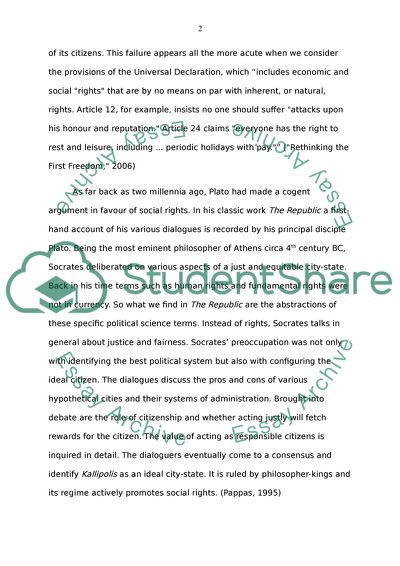Cite this document
(Should the Liberal-Democratic Government Protect the Social Rights of Essay Example | Topics and Well Written Essays - 1500 words, n.d.)
Should the Liberal-Democratic Government Protect the Social Rights of Essay Example | Topics and Well Written Essays - 1500 words. https://studentshare.org/social-science/1825275-should-a-liberal-democratic-government-protect-the-social-rights-of-its-citizens-justify-your-answer
Should the Liberal-Democratic Government Protect the Social Rights of Essay Example | Topics and Well Written Essays - 1500 words. https://studentshare.org/social-science/1825275-should-a-liberal-democratic-government-protect-the-social-rights-of-its-citizens-justify-your-answer
(Should the Liberal-Democratic Government Protect the Social Rights of Essay Example | Topics and Well Written Essays - 1500 Words)
Should the Liberal-Democratic Government Protect the Social Rights of Essay Example | Topics and Well Written Essays - 1500 Words. https://studentshare.org/social-science/1825275-should-a-liberal-democratic-government-protect-the-social-rights-of-its-citizens-justify-your-answer.
Should the Liberal-Democratic Government Protect the Social Rights of Essay Example | Topics and Well Written Essays - 1500 Words. https://studentshare.org/social-science/1825275-should-a-liberal-democratic-government-protect-the-social-rights-of-its-citizens-justify-your-answer.
“Should the Liberal-Democratic Government Protect the Social Rights of Essay Example | Topics and Well Written Essays - 1500 Words”. https://studentshare.org/social-science/1825275-should-a-liberal-democratic-government-protect-the-social-rights-of-its-citizens-justify-your-answer.


